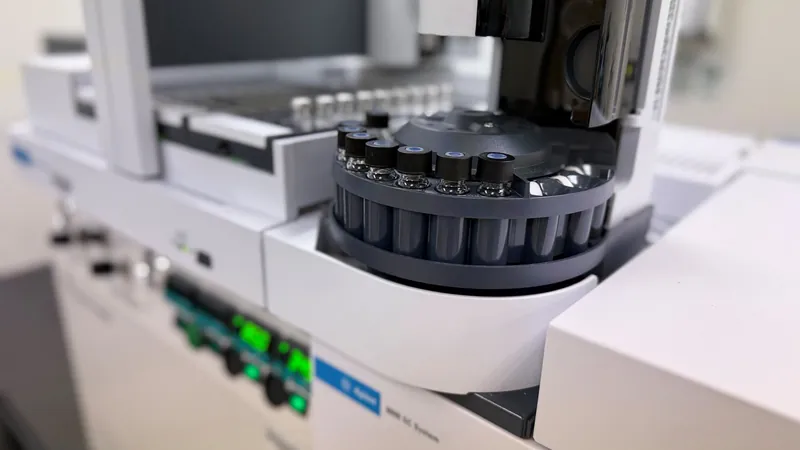
Microbial Revolution: Could Engineered Yeasts Feed Astronauts on Mars?
2025-04-23
Author: Arjun
A Bold New Mission to the Stars!
In a groundbreaking initiative, scientists from Imperial College London are testing engineered microbes that could revolutionize food production for astronauts on interplanetary journeys. As private companies and space agencies set their sights on distant planets, the challenge of transporting food, water, and fuel becomes ever more daunting.
The High Cost of Space Nutrition
Did you know that feeding just one astronaut in orbit can cost up to £20,000 per day? That's why researchers are exploring the power of engineered yeasts capable of manufacturing essential supplies in space through precision fermentation.
Meet the Innovators Behind the Project
Leading the charge is Dr. Rodrigo Ledesma-Amaro from Imperial's Bioengineering Department, in collaboration with Cranfield University and the industry partners Frontier Space and ATMOS Space Cargo. Their joint initiative launched a compact biomanufacturing lab into orbit to probe the capabilities of these microbes in microgravity.
Transforming Space Travel with Microbes
Dr. Ledesma-Amaro, associated with the Bezos Centre for Sustainable Protein, envisions a future where tiny cultivated cells can provide food, pharmaceuticals, fuels, and bioplastics using resources readily available in space. He states, "If we can harness just a few cells to meet our nutritional needs on these missions, it would transform the cost and logistics of space travel!"
The Revolutionary 'Lab-in-a-Box'
Their ingenious 'lab-in-a-box' traveled with yeast samples to space. After its return, researchers will analyze how microgravity and space conditions affect the microbes' performance.
Democratizing Space Research
Aqeel Shamsul, CEO of Frontier Space, remarks on the broader impact of this mission: "This technology symbolizes a significant leap in making space research accessible. Our SpaceLab Mark 1 allows sophisticated experiments in microgravity, breaking down traditional barriers in space exploration."
The Future of Space Food is Here!
The discoveries from this mission have the potential to revolutionize not just food production in space, but also pharmaceuticals and autonomous manufacturing systems crucial for deep space exploration. Imagine astronauts growing their own food and medicine on Mars in the near future!


 Brasil (PT)
Brasil (PT)
 Canada (EN)
Canada (EN)
 Chile (ES)
Chile (ES)
 Česko (CS)
Česko (CS)
 대한민국 (KO)
대한민국 (KO)
 España (ES)
España (ES)
 France (FR)
France (FR)
 Hong Kong (EN)
Hong Kong (EN)
 Italia (IT)
Italia (IT)
 日本 (JA)
日本 (JA)
 Magyarország (HU)
Magyarország (HU)
 Norge (NO)
Norge (NO)
 Polska (PL)
Polska (PL)
 Schweiz (DE)
Schweiz (DE)
 Singapore (EN)
Singapore (EN)
 Sverige (SV)
Sverige (SV)
 Suomi (FI)
Suomi (FI)
 Türkiye (TR)
Türkiye (TR)
 الإمارات العربية المتحدة (AR)
الإمارات العربية المتحدة (AR)